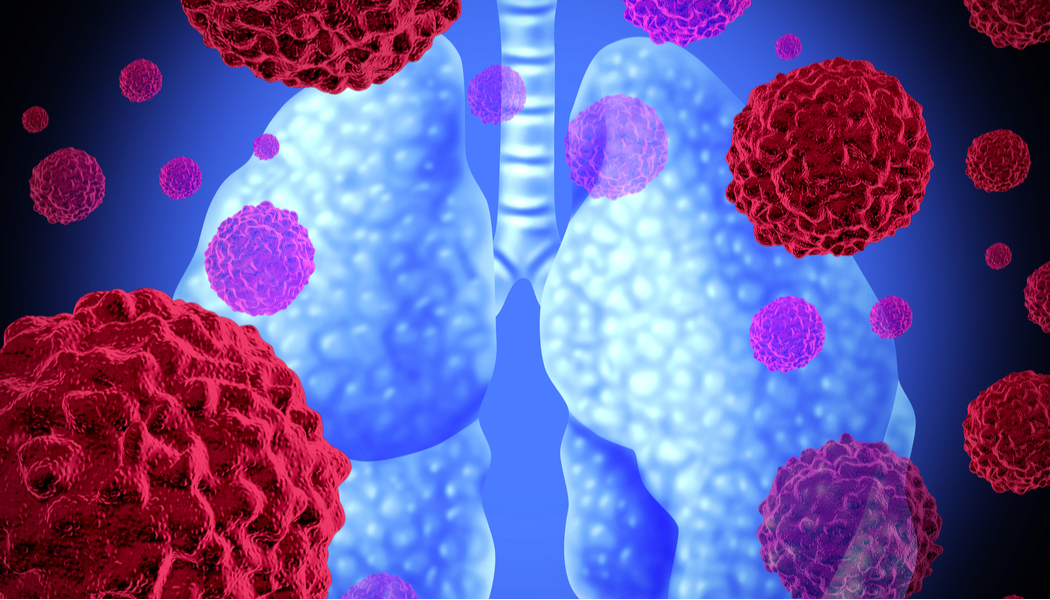12 April 2019
Study Update: A Novel Therapy for Non-Small Cell Lung Cancer
Lung cancer is the second most common type of cancer identified in the U.S., with an estimated 221,100 new diagnoses annually. It is by far the leading cause of cancer-related deaths in the United States, claiming approximately 25% of all cancer deaths. Military personnel are at an increased risk of developing lung cancer due to higher rates of smoking and increased exposure to environmental carcinogens during their time of service1.
Non-small cell lung cancer (NSCLC) is the most common type of lung cancer, accounting for an estimated 85-90% of the lung cancer cases2. Of these cases, approximately 9,000 have the anaplastic lymphoma kinase (ALK) gene rearrangement. NSCLC patients with the ALK alteration tend to be younger compared with other types of NSCLC, and have never smoked or have prior light smoking history3.
The ALK rearrangement is not a hereditary alteration, but an acquired genetic alteration that develops as the cancer progresses, accelerating the development and growth of tumors. Medications called tyrosine kinase inhibitors (TKIs) have been shown to delay tumor growth or even reverse the size of tumors in patients with ALK rearrangements. While there are several ALK directed TKIs (ALK TKIs) to treat this patient population, resistance inevitably occurs and the drug loses effectiveness. Xcovery, a biopharmaceutical company developing targeted therapeutics for cancer, recently developed ensartinib (X396), an oncology therapy with the potential to address the growing issue of ALK TKI resistance. Ensartinib is considered a 2nd generation ALK TKI and is currently in clinical trials. It inhibits some of the mutations associated with resistance to 1st generation ALK TKIs, based on non-clinical data, and is potentially more potent than the alternate ALK TKIs available to patients.
Geneva is partnering with Xcovery in a Phase 2 clinical trial of ensartinib in adults with ALK positive NSCLC. The Phase 2 study is currently evaluating the safety and efficacy of ensartinib in patients who have received prior ALK TKI treatment and thus developed resistance. Preliminary results from the Phase 2 clinical trial have demonstrated promising activity in both patients who have failed to respond to ALK TKIs, are ALK TKI-naïve, and in patients with brain metastases, a common site of disease resistance and recurrence. Additional trials with ensartinib have commenced or are in the planning stages, including trials in patients who are treatment naïve and in combination with an immunotherapy agent or in other disease settings.
1 ”Lung Cancer.” Department of Defense – Congressionally Directed Medical Research Programs. cdmrp.army.mil/lcrp/
2 Mayo Clin Proc. “Non–Small Cell Lung Cancer: Epidemiology, Risk Factors, Treatment, and Survivorship.” US National Library of Medicine National Institutes of Health.www.ncbi.nlm.nih.gov/pmc/articles/PMC2718421/.
3 N. Engl J Med. “Anaplastic Lymphoma Kinase Inhibition in Non–Small-Cell Lung Cancer.” US National Library of Medicine National Institutes of Health. www.ncbi.nlm.nih.gov/pmc/articles/PMC3014291/.


